If news reports are correct, the United States of America is about to leave the Paris Climate Agreement that the Obama administration signed onto in 2016. The Paris Agreement was heralded as the beginning of a new era for global climate policy, in which all of the earth’s nations would begin pulling in the same direction, some with great enthusiasm and some with a grudging but ultimately accepting attitude. Now the world’s second-largest emitter of carbon dioxide will leave the agreement behind, casting significant doubts over its future relevance. Such a moment was, unfortunately, always a foreseeable possibility. Paris’s non-binding structure was chosen in large part to allow President Obama to sign without seeking Senate approval, which everyone understood he would be unlikely to get for any climate treaty given the abysmal relationship he had with Republicans during his second term. Climate activists in the United States largely wrote off the possibility of winning Republican support for any climate policy, deeming the task near-impossible. Instead they and the administration adopted a strategy that sought to circumvent the GOP, which they presumed could be treated as a manageable, if yippy, minority for years to come. They were wrong—and the Paris Agreement is now suffering the consequences.
If the decision to withdraw is made it will be endlessly analyzed, and many observers will inevitably focus on the interpersonal dramas of the Trump White House, which was sharply divided on the wisdom of making a clean break from Paris, or the intra-personal dramas within the president’s own thinking, which are often hard to look away from. Certainly, it is worth noting that candidate Trump promised to exit the agreement, and President Trump has shown a strong desire to present himself as a promise-keeper where he has the power to deliver.
But the truth is that this moment is mostly a function of party, rather than anything distinctive about Trump or his advisors. All of the leading Republican candidates for the presidency signaled their hostility to the Obama administration’s Paris pledge, including Ted Cruz, Marco Rubio, and John Kasich (who said he believed any such agreement required Senate approval). Moreover, Republican legislators have largely maintained their opposition as their party has come into a position to follow through on its anti-Paris talk. Although a handful of Republican legislators expressed their desire to stay within the Paris framework while revising the country’s commitment level, 13 representatives and 22 senators expressed their desire to leave entirely (the latter motivated by a worry that environmentalists would be able to use America’s Paris commitment in combination with § 115 of the Clean Air Act to block an expected Trump administration reconfiguration of climate regulations). Had Hillary Clinton won the presidency in 2016 but lost it in 2020, many of the same dynamics might have played out in 2021.
If the United States is to achieve a more politically sustainable national climate policy, it will have to run through Republicans rather than around them. That “if” is not intended rhetorically; perhaps there are simply enough powerful pockets of committed political opposition well-positioned in the U.S. political system to make a lasting climate policy impossible. The need to master volatile domestic politics on climate issues will necessarily make the issue difficult to pin down with confidence—and not only for the U.S. Sub-national governments with populations firmly committed to climate mitigation policies (like New York City) can attempt to fashion a second-best regime of locally rooted policies, but if their efforts are internally focused, they are likely to leave the most cost-efficient emissions (which are available in coal-reliant regions) reductions undone.
At the present moment, it is truly difficult to see how large numbers of Republican elected officials might be brought around to supporting costly action on climate change even though Republican voters are less vehemently against climate change than their leaders, as Bill Galston writes in a polling report published on Fixgov. There are certainly some groups thinking hard about exactly how such a change might occur, often trying to sell the merits of a carbon tax within a larger tax reform package. That makes a great deal of sense—but there is no denying that Republicans are dug into their opposition to policy action on climate quite deeply, even as outright denial of climate change as a scientific phenomenon seems to be waning. We may simply be destined to see what the world can achieve on climate even with an uncooperative United States—and hope that a new generation of political entrepreneurs can find ways to imaginatively and persuasively reframe the issues within American politics.
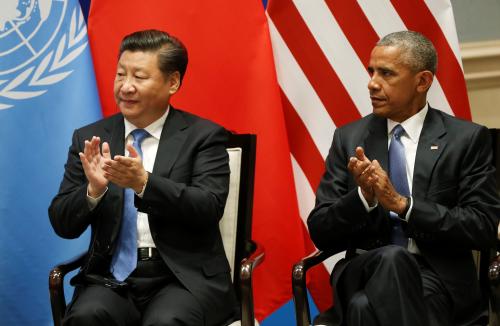
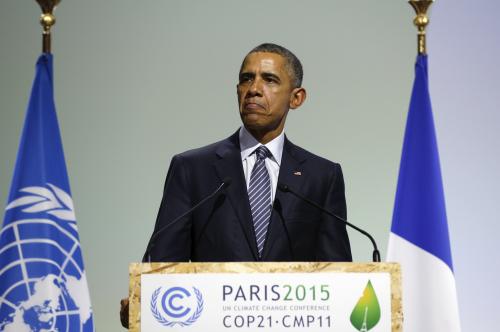

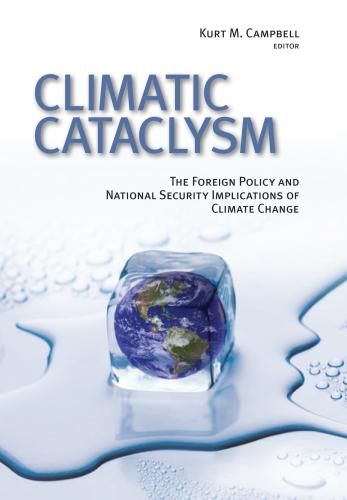
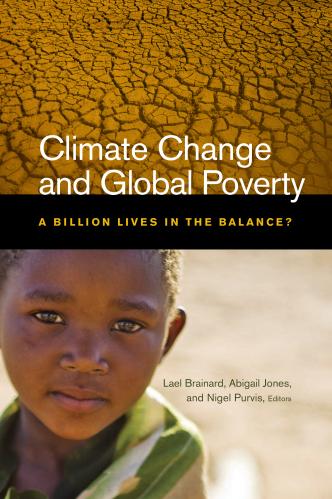


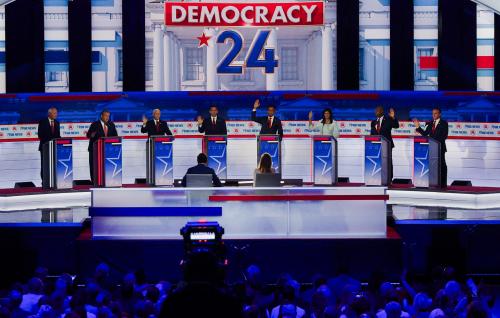
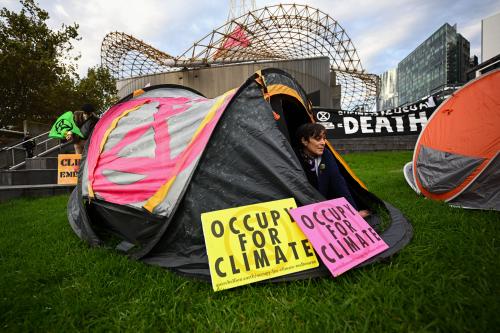
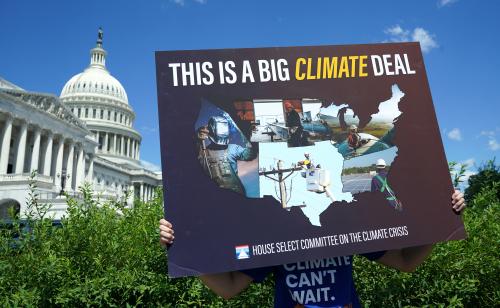
Commentary
An America not in Paris
May 31, 2017